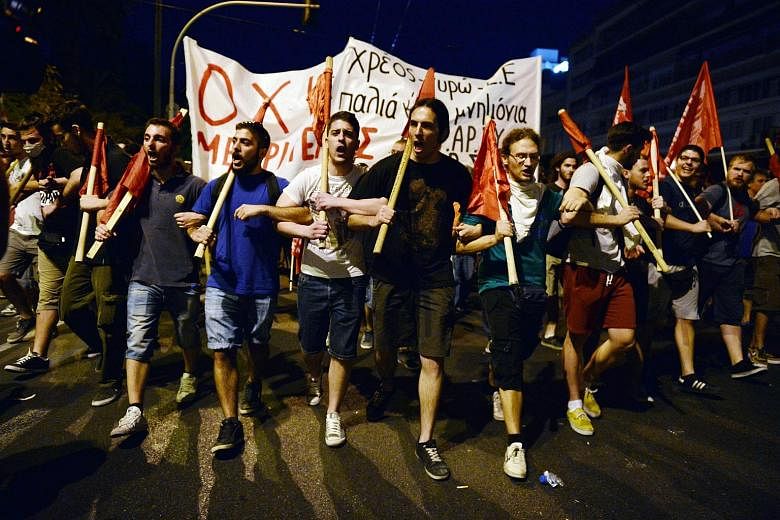Whatever the outcome of last night's vote in the Greek Parliament, the country faces considerable upheaval and hardship in the months ahead as it tries to reset its economy.
The immediate choice facing Greek MPs concerned the new €86 billion (S$129 billion) bailout deal, which requires a range of tough economic reforms, including a raft of tax increases and pension reforms that had to be legislated by yesterday's deadline.
Passing the draconian reforms, which the Greeks rejected in a referendum just a week ago, will give Greece access to bailout funding it needs to make a crucial €3.5 billion debt repayment to the European Central Bank next Monday. If Greece fails to make that payment, its banking system faces collapse.
Greek Prime Minister Alexis Tsipras spent much of yesterday trying to ensure he had sufficient backing from cross-party MPs to shore up support for the deal after hardliners in his own Syriza party baulked at the bailout terms.
As the debate got under way yesterday, deputy finance minister and Syriza member Nadia Valavani quit while the energy minister said he would not back the deal.
Unions and trade associations representing civil servants, municipal workers and pharmacy owners, who face more competition under the bailout reforms, staged strikes yesterday that disrupted public transport and shut down services and pharmacies across the country.
Despite the opposition, the deal was expected to pass with support from pro-European opposition parties. A snap election could follow if Mr Tsipras' majority collapses.
Adding to the debate is a new study released by the International Monetary Fund calling for much more debt relief than euro zone leaders have been willing to consider so far.
It warned that Greek government debt could reach close to 200 per cent of gross domestic product over the next two years, which is "highly unsustainable".
The IMF has argued that it will not be able to participate in the deal if European creditors do not offer Athens substantial debt relief.
Greek banks, shut since June 29, are dangerously low on liquidity while the state is almost out of cash. Mr Tsipras has warned that the banks are unlikely to reopen until the bailout deal is ratified by parliaments in other euro zone states, and this could take another month.


